5 Im Siwan K-Dramas You Can’t Afford To Skip
Im Siwan’s versatile talent and undeniable charm have firmly established him as a beloved figure in the world of Korean entertainment. Rising to fame as a member of the popular group ZE:A, Im Siwan seamlessly transitioned into acting, captivating audiences with his multifaceted performances. His dedication to honing his craft and his ability to embody diverse characters have solidified his status as an esteemed actor. From his early endeavors to his more recent roles, Siwan’s journey on the K-drama landscape mirrors his growth as a thespian. In this spotlight, here are five captivating K-dramas starring Im Siwan that illuminate his evolution as an actor.
“Summer Strike”

Meet Lee Yeo Reum (Seolhyun), a 27-year-old woman living in Seoul and working in a publishing house that takes her work for granted. After going through one traumatic experience after another, she decides to leave the city and her problems behind to spend a year in a small coastal town for a well-deserved rest.
There, she encounters Ahn Dae Bum (Im Siwan), an introverted librarian who seldom speaks to anyone, hates being touched, and carries a traumatic past himself. However, after meeting Yeo Reum, Dae Bum can’t help but feel his heart tugging toward her. His heart skips a beat every time their eyes meet, and he realizes he doesn’t need words when communicating with her. Through small gestures and unspoken promises, they get closer, and Dae Bum finally emerges from his shell.
But there’s more to this sweet slice-of-life story than what the trailers suggest. Dae Bum’s past comes back to haunt him right after Yeo Reum moves to his town. Consequently, they both work together to uncover the culprits behind Dae Bum’s traumatic history.
“Summer Strike” offers a romance that envelops you in the warmth of summer and slow-burn love through the screen. It stands apart from the grand gestures typically associated with K-dramas, showcasing a unique side of romance—slow, steady, and free of clichés.
“Boyhood”

Jang Byung Tae (Im Siwan) is a simple high school student who has been bullied his entire life simply for existing. Life gives him another chance to start over when his family has to relocate to a neighboring small town. Due to the similarity in names, he gets mistaken for the White Tiger, Jung Kyung Tae (Lee Si Woo), another new student and the expected top dog of Buyeo Agricultural High School. Byung Tae hopes this lie will protect him from being bullied in high school, but it ends up causing him more problems than he could have ever imagined.
Set in the 1980s, “Boyhood” is a K-drama that explores boyhood and the struggles that come with it. This show serves as a window through which you can see how bullying affects everyday boys, leaving them wishing for the worst. Life is not always filled with rainbows and butterflies, nor is it filled with rain-filled clouds; it is a mixture of both. Therefore, the genre switching from comedy to drama acts as a jarring depiction of real life, where nothing is consistent.
“Strangers From Hell”

Meet Yoon Jong Woo (Im Siwan), an aspiring writer who moves to Seoul to work as an intern at his ex-class fellow’s small business. Due to having little to no money, he moves into a communal residence named Eden Studio situated in a remote area. Despite the name, this studio turns out to be Jong Woo’s personal hell, with its eerie residents becoming the bane of his existence. As the plot twists unfold, it becomes evident that Jong Woo was doomed from the moment he set foot in this place. Yet, the crucial question lingers: will he suffer the same fate as the victims of these strangers or transform into a devil himself?
What sets “Strangers From Hell” apart from other thriller K-dramas is its portrayal of numerous strange characters working in unison to create a hellish atmosphere. In fact, the studio itself functions as a character, evoking specific emotions in the audience. Im Siwan’s portrayal of Jong Woo in “Strangers From Hell” ranks among his most iconic roles. Despite his angelic and naive features, he skillfully embodies Jong Woo’s gradual descent into madness. His acting is so compelling that you can almost feel his pain through the screen.
“Run On”

Enter Ki Seon Gyeom (Im Siwan), a national sprinter about to retire, brimming with enthusiasm for all things related to running. Oh Mi Joo (Shin Se Kyung), a professional subtitle translator, possesses an unmatched passion for movies. When Ki Seon Gyeom requires a translator for his upcoming event, his father and an embassy official hire Mi Joo to be his voice and ears, with the added task of keeping him in line for some extra cash. Unexpectedly, a series of events leads Mi Joo to help Seon Gyeom in his fight to shed light on the dark aspects of being a national athlete.
“Run On” presents a classic “boy-meets-girl-and-falls-in-love” narrative, though it distinguishes itself through the genuine and non-clichéd development of the characters’ relationship. Their attraction grows steadily, making their connection feel authentic. The relationship itself is rather mature which might lead some viewers to think the drama is a bit slow-paced. But if you hate cliches, “Run On” is for you. Moreover, the drama sheds light on the hidden bullying that junior athletes endure behind closed doors.
“Incomplete Life”

Now, let’s immerse ourselves in the world of Jang Geu Rae (Im Siwan), a former baduk (go) trainee and a hardworking 26-year-old struggling to secure a proper job due to his lack of higher education and experience. Hopping from one odd job to another, facing unfair compensation, he finally gains a corporate internship thanks to his mother. Yet, life in the corporate world proves to be far more challenging than he anticipated. His coworkers look down upon him, attributing his role to connections rather than qualifications. His manager despises him, refusing to provide an opportunity to someone deemed unqualified. However, Geu Rae’s response isn’t to give up and quit. Instead, he gives his 200 percent and proves himself as a capable employee.
“Incomplete Life” (also known as “Misaeng”) receives acclaim for its authentic depiction of the often brutal realities of office life, coupled with its focus on the personal growth and camaraderie that develop among the characters. The K-drama provides thought-provoking commentary on the challenges confronted by young individuals entering the workforce—highlighting their aspirations and the delicate balance between personal dreams and societal expectations.
cr: Soompi
Other Articles
-
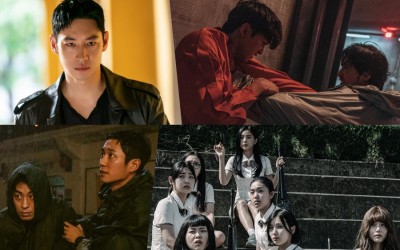
30+ Action/Thriller Dramas Of 2023 (K-Drama Masterlist)
-
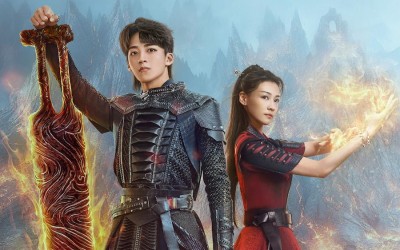
3 Reasons Why C-Drama “Battle Through The Heaven” Is Worth Watching
-
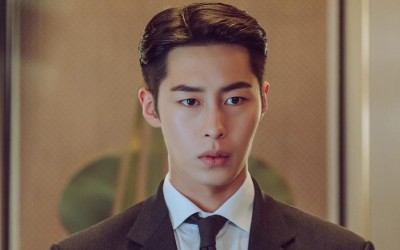
Lee Jae Wook Chases After His Goals With A Poker Face In “The Impossible Heir”
-
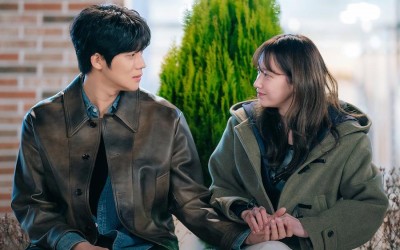
Jeon Jong Seo And Moon Sang Min Are Entangled In An Unexpected Way In “Wedding Impossible”
-
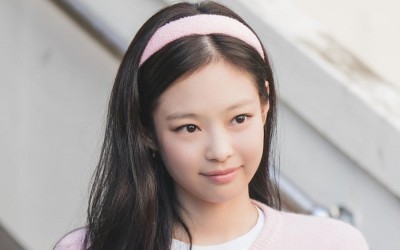
BLACKPINK’s Jennie Dishes On “Apartment 404” Teamwork, Reuniting With Yoo Jae Suk, And More
-
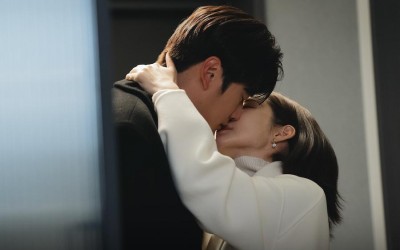
“Marry My Husband” Ratings Break Into Double Digits For New All-Time High
-
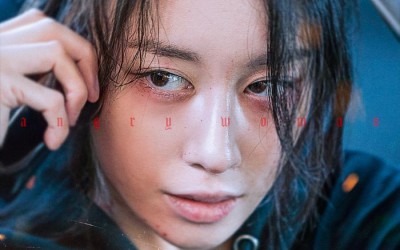
T-ara’s Jiyeon’s Upcoming Thriller Movie Confirms March Release In New Gripping Poster
-
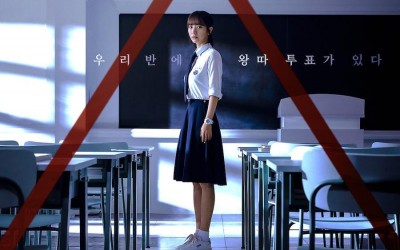
WJSN’s Bona Becomes The Target Of School Bullying In Poster for Upcoming Thriller Drama “Pyramid Game”
-
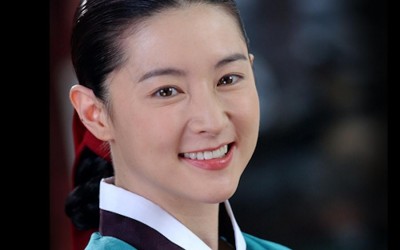
Lee Young Ae Confirmed To Reprise Her Role As Dae Jang Geum After 20 Years + Upcoming Drama Shares Broadcast Plans
-

Park Hae Soo And Kim Tae Hee Confirmed To Star in American Series “Butterfly”
-
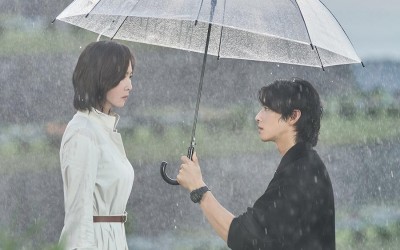
Cha Eun Woo And Kim Nam Joo Exchange Lonely Yet Mysterious Gazes In Poster For Upcoming Drama “Wonderful World”
-
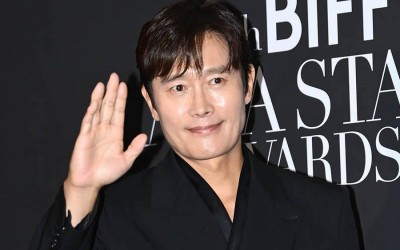
Lee Byung Hun’s Agency Releases Brief Statement Regarding A Break-In To His LA House
Genres
- Accident
- Action
- Adventure
- Alien
- Amnesia
- Ancient legend
- Animals
- Animation
- Arthouse
- Artificial Intelligence
- Award Winning
- Based on a Comic
- Based on True Story
- Betrayal
- Biography
- BL
- Bodyguard
- Bromance
- Business
- Chambara
- Childhood
- Christmas
- Cohabitation
- Cold Man
- Coma
- Comedy
- Concert
- Conglomerate
- Conspiracy
- Contract Relationship
- Corruption
- Crime
- Criminal
- Curse
- Dance
- Deity
- Demon
- Detective
- Disability
- Disaster
- Documentary
- Drama
- Eastern
- Educational
- Entertainment
- Environment
- Erotica
- Espionage
- Exorcism
- Exploitation
- Fairy
- Family
- Fantasy
- Fashion
- Feminism
- Food
- Foreign
- Friendship
- Game Developer
- Gangster
- Geishas
- Gore
- Goryeo Dynasty
- Grudge
- Gumiho
- Harem
- Hidden Identity
- Historical
- Horror
- Hostage
- Human
- Hypnotism
- Idol Drama
- Indie
- Instructional
- Investigation
- Jidai Geki
- Josei
- Kidnapping
- Kung Fu
- Law
- legal
- Lesbian
- LGBTQ+
- life
- Love Triangle
- Mafia
- Magic
- Manga
- Manhua
- Martial Arts
- Mature
- Medical
- melodrama
- Mermaid
- Military
- Miniseries
- Misunderstanding
- Monster
- Murder
- Music
- Musical
- Mystery
- Mythology
- Nature
- Neighbours
- Noir
- Novel
- Omnibus
- One shot
- Parody
- Phobia
- Poison
- police
- political
- Power Struggle
- Prison
- Professional
- Programmer
- psychiatry
- Psychological
- Reality
- Reality Show
- Reality TV
- Rebellion
- Religion
- Remake
- Republic
- Resurrection
- Revenge
- Rich Man
- Robot
- Romance
- RPG
- Rural
- Samurai
- Scholar
- School
- Sci-fi
- Seinen
- Serial Killer
- Short
- Sismance
- Sitcom
- Slapstick
- Slice of Life
- Society
- Soulmates
- Sports
- Supernatural
- Survival
- Suspense
- Swordsman
- Taiga drama
- Teamwork
- Tearjerker
- Teen
- Terrorist
- Thief
- Thriller
- Time Travel
- Tokusatsu
- Tomboy
- Tragedy
- Tragic Past
- Transmigration
- Trauma
- Treason
- Triad
- Underworld
- Unrequited Love
- urban drama
- Vampire
- Variety
- Variety show
- War
- Warrior
- Web Series
- Webtoon
- Werewolf
- Western
- Witch
- Workplace
- Wuxia
- Yakuza
- Yaoi
- Youth
- Yuri
- Zombie

